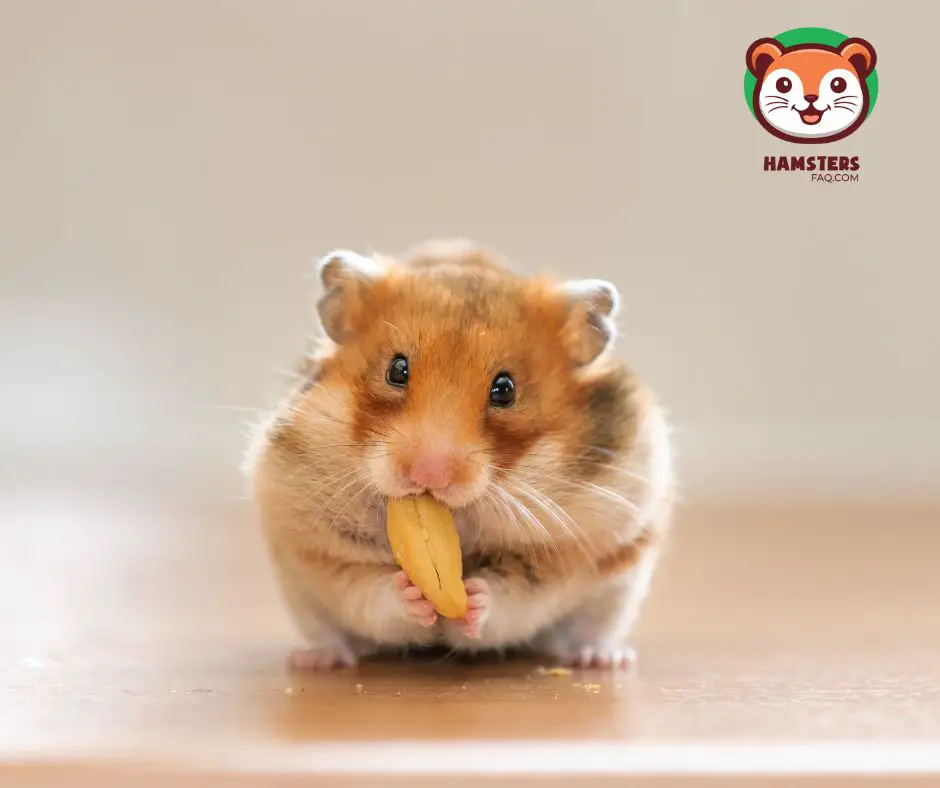While this may seem like a silly question, many people take their pet’s health very seriously, and it is because of these people that this topic was brought to my attention.
As anyone with a guinea pig or hamster knows, both breeds of rodents are easy to care for and, therefore, loved by millions of people.
So many people with both pets often wonder whether they should feed the hamster the same food they feed their guinea pig.
This is a blog post you should read carefully. It’s great because it answers the question, can you feed young guinea pig food to my hamster?
No, you should not give young guinea pig food to your hamster because it is high in vitamin C, which is great for guinea pigs, but it’s not so great for hamsters who need more protein and fat than vitamin C in their diet.
They also can’t handle the high level of vitamin C in guinea pig food because it’s toxic to them.
While guinea pigs need a high amount of vitamin C, it can be dangerous for your hamster. Guinea pigs are herbivores, so they need a lot of Vitamin C to process cellulose in their diet. Hamsters are omnivores and do not have this requirement.
If you want to give your hamster treats, try giving him carrot sticks instead of guinea pig food.
What Can Hamsters Eat?
To keep a hamster as a pet, you’ll need to know what foods to feed them to stay healthy and happy. Here are some of the best types of food for your hamster:
1. Pellets
Pellets are food pellets designed specifically for rodents such as hamsters and gerbils. This food is formulated to be nutritionally complete, so it doesn’t need to be supplemented with other foods such as seeds or vegetables.
Pellets are one of the most common types of food given to hamsters because they contain all the nutrients your pet needs while also being easy to store, prepare and serve up to your pet each day.
Pellets come in many different flavors, so you can pick one that will appeal to your furry friend’s taste buds.
2. Seed mixes
Hamsters love to eat seed mixes available at pet stores in dried or pelleted form. The most common seed mix comprises oat groats, wheat germ, sunflower seeds, cornmeal, and alfalfa hay pellets.
The seeds provide the bulk of the calories, while the hay pellets are more nutritious than plain grass hay. It’s best to feed them just one teaspoon of seed mix daily and other foods like vegetables and fruits.
3. Vegetables & Fruits
Hamsters need a diet high in fiber but low in fat and protein, so avoid feeding them anything salty or fatty such as cheese or peanut butter, on their vegetables or fruit pieces.
Vegetables such as carrots, peas, broccoli, and spinach should make up about half of their diet, while fruits such as apples, strawberries, and bananas should also be included for variety.
4. Grains
Oatmeal is another healthy food choice for your pet because it contains fiber to help with digestion and protein and carbohydrates for energy production.
You can also give your hamster whole wheat bread or pasta if you prefer these options over oatmeal or cereal grains.
5. Nuts
Hamsters can eat nuts, but choose ones that are unsalted, raw, and not roasted. Nuts also provide protein and fiber, which is good for your hamster’s digestive tract.
The only thing you should be careful about when feeding nuts is if your hamster has any allergies or if they have any nut allergies themselves. If so, then you should avoid feeding them any nuts at all.
6. Raw beans
Raw beans are not good for hamsters because they contain toxins called lectins. These lectins can cause stomach problems such as diarrhea, vomiting, and even death in some cases.
7. Milk products
Hamsters do not have enough enzymes in their bodies to digest milk products properly, so even small amounts can cause diarrhea or other problems with digestion.
What Foods You Should Not Feed Hamsters
Hamsters are omnivorous and will eat almost anything. However, some foods should be avoided because they can cause health problems or even death.
1. Onion or Garlic
Both onion and garlic can cause gastrointestinal upset in hamsters, so avoid feeding them these foods if possible. You may also notice that when your hamster eats onions or garlic, it will smell like it for days after.
2. Cabbage Family
The cabbage family is another food that can cause digestive upset in hamsters, though it usually results in loose stools rather than diarrhea like onions and garlic.
3. Citrus fruit
Citrus fruit contains high levels of acid that can be harmful if eaten by hamsters. This includes lemons, oranges, and limes.
4. Rhubarb
Rhubarb leaves, stems, and roots can be toxic to hamsters. This can cause diarrhea, vomiting, and even death, so keeping all rhubarb out of their reach is important.
You’ll want to take them to the vet immediately if they get into some rhubarb.
Rhubarb leaves are the most toxic part of the plant. The stems are also in large quantities but not as dangerous as the leaves.
The roots are not as hazardous as other parts of the plant, but they should always be kept away from your hamster.
5. Nectarines
Feeding a nectarine to a hamster can cause diarrhea, vomiting, and even death in some cases. The same goes for other berries and fruits like apples, grapes, and bananas.
Conclusion
It’s not a good idea for you to feed your hamster guinea pig food. Just as dogs and cats need different kinds of nutrients (depending on their species), so do rodents of different species within the rodent family.
Guinea pigs and hamsters are rodents, but they come from different genera and have different nutritional needs. So, even if your hamster is begging for more guinea pig food, you might be doing it a disservice by giving it guinea pig food.
Because they can sometimes scavenge on their food source, more specifically, their rodents of choice, it’s better to give your species of the rodent the kind of food that it naturally eats.

